Ex-footballer died after discharge, inquiry told
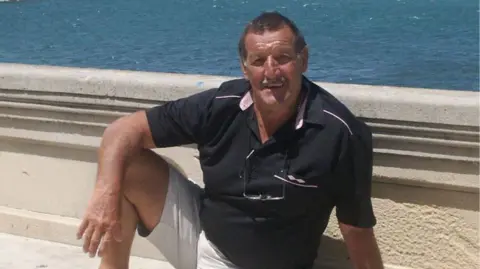 FAMILY PHOTO
FAMILY PHOTOA former professional footballer died after being discharged from an inpatient mental health unit, a public inquiry into more than 2,000 mental health deaths has heard.
Colin Flatt, 81, who played for Barnet in the FA Trophy final at Wembley in 1972, was described at the Lampard Inquiry as a "successful businessman".
His partner of 20 years, Melanie Leahy, has been one of the driving forces pressing for the inquiry into the deaths in Essex.
Nine years earlier, her son Matthew, 20, also died while he was under the care of NHS mental health services in the county.
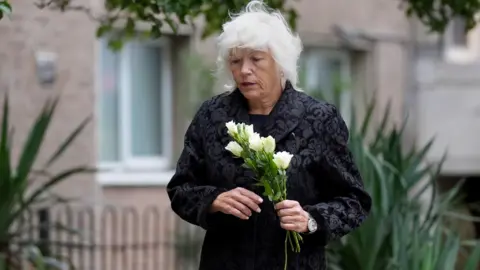 PA
PAMr Flatt, who also played for Southend United, Leyton Orient and Romford in the 1960s and 1970s, died in 2021 within three months of being discharged from an inpatient mental health unit run by North East London NHS Foundation Trust (NELFT).
He was initially taken to hospital for a physical health problem, but staff said he needed to be admitted to a mental health facility.
Ms Leahy told the inquiry in Chelmsford: "How a man in his 80s ended up flanked by security guards, naked, lying in urine-soaked sheets at the bottom of a hospital bed while suffering from a severe infection, is what led me to being here today.
"Helpless, I just watched the man I loved deteriorate in front of me."
She said she was still waiting for an inquest into his death with a feeling of "dread and deja vu".
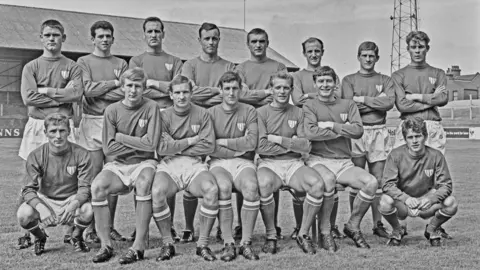 GETTY IMAGES
GETTY IMAGESMs Leahy had previously given a separate statement regarding Matthew, who died in 2012.
She said the last eight days of her son's life at the Linden Centre, Chelmsford, were spent "in a place… I truly believe was hell on Earth".
She said she "misses them both so much".
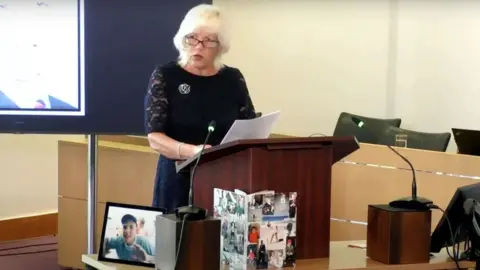 LAMPARD INQUIRY/YOUTUBE
LAMPARD INQUIRY/YOUTUBEThe inquiry also heard from Alan Oxton, whose father Stephen, 53, took his own life at The Lakes mental health unit in Colchester in 2012.
Mr Oxton recounted watching football matches with his father, an avid Arsenal fan.
He said he felt utterly betrayed after staff at The Lakes had reassured him that his father was in a place of safety, and said multiple failings were found at his inquest.
Mr Oxton said the death had had a "catastrophic effect on my own life" and he was "still struggling today".
Despite previous investigations, he was "still none the wiser" about how his father died, he said.
Marion Turner, 40, was found dead at The Lakes a year later.
Her mother Martha Gaskell, who travelled to the hearing from Stoke-on-Trent, described how Ms Turner's father was in the army and died in a bomb blast in Northern Ireland when she was young.
Ms Turner went on to marry a soldier herself, but as she moved around the world, her mental health deteriorated.
Ms Gaskell said she felt very strongly that her daughter "did not get the care she needed" and said she was was "frustrated, angry and very hurt that I was never listened to as her mother".
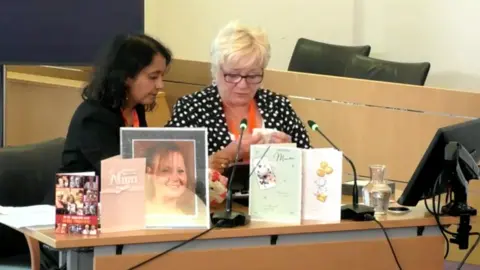 LAMPARD INQUIRY/YOUTUBE
LAMPARD INQUIRY/YOUTUBEPaul Scott, chief executive of Essex Partnership University Trust, which provides the majority of mental health services in Essex, said: "We will continue to do all we can to support Baroness Lampard and her team to provide the answers that patients, families and carers are seeking."
NELFT, which provides dementia crisis, and children and adolescent services in parts of Essex, said: "Patient safety is our absolute priority and we are committed to learning from the work of the inquiry."
The inquiry continues for two days next week before another three-week session in November.
There will be further sessions in 2025, with a final report unlikely to be published before the end of 2026.
